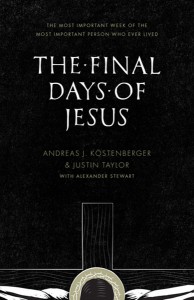 If you have a new revelation from the scriptures, you are probably wrong. I’m not sure who said that to me first, but it is true. If you believe you have a new revelation, you are wrong in at least one of two ways. Either your revelation is not new at all or it is not from the scriptures. Heresy often begins with a desire for something new or different. We long for more and as a result of our longing, we look for the Bible to say something new.
If you have a new revelation from the scriptures, you are probably wrong. I’m not sure who said that to me first, but it is true. If you believe you have a new revelation, you are wrong in at least one of two ways. Either your revelation is not new at all or it is not from the scriptures. Heresy often begins with a desire for something new or different. We long for more and as a result of our longing, we look for the Bible to say something new.
It is the longing for new and different that often draws us away from the beautiful old story of the gospel (see 1 John) and that drives much of the publishing world. I am thankful for books and teaching that deliver nothing new, but a different twist on an old story. With that in mind, I am very thankful for The Final Days of Jesus by Andreas Kostenberger and Justin Taylor. This book is a real blessing. Of course, it would be difficult for this book to be bad since it is primarily cutting and pasting from the biblical text.
The authors have taken the final week of Jesus and broken down all of the relevant biblical material into a daily diary of sorts. I have a synopsis of the four gospels that has often proven beneficial for me and I’ve read the gospel accounts chronologically, but never have I had the gospel accounts of Jesus’s last week compressed into one place where I could absorb them easily and get lost in the story, perhaps the way that the gospel writers intended. Kostenberger and Taylor explain it this way:
The early church did not consider our four Gospels as four separate Gospels but as one Gospel according to four different witnesses–the Gospel (singular) according to Matthew, Mark, Luke, and John. The early church had it right: there is only one gospel message.
I strongly recommend this book, not because of the new information it contains, but because of the way that it presents the beautiful old story of Jesus’s last week.

